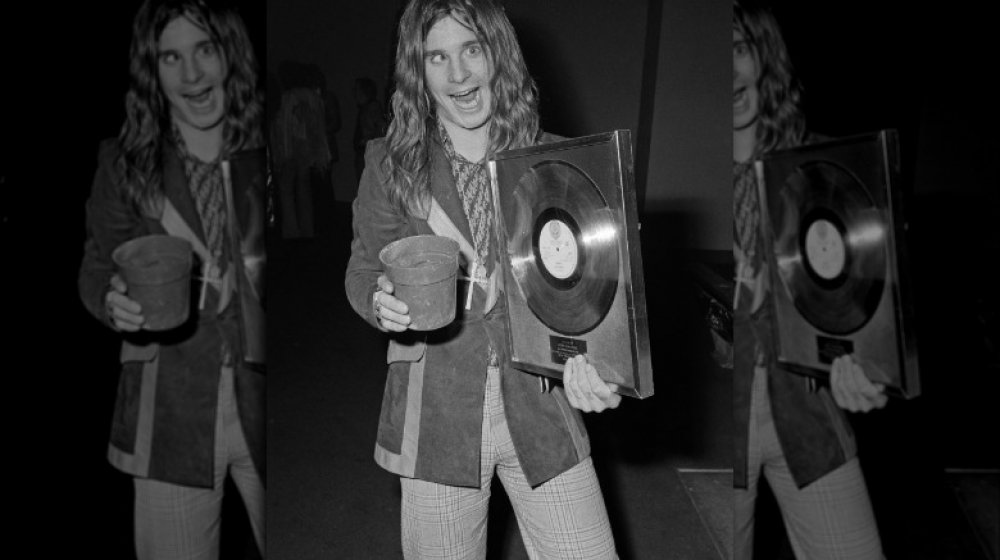Why Black Sabbath Was Never The Same After Covering Evil Woman
When it comes to heavy metal, the name Black Sabbath reigns supreme. Like them or love them, they've been an influence, in one way or another, on every metal band to hit the scene after them. The band as lived through two lead singers, sold 13 platinum albums, and spawned a wide, if not weird, web of media. The Ozzy Osbourne legacy has branched out in ways that no one could've seen coming. Osbourne started with Black Sabbath, moved on to his own career (while Sabbath moved on with Ronnie James Dio), and ended up on a reality TV show with his entire family, each of whom has gone on to find success in film, television, or music. And it was all thanks to Black Sabbath.
It's hard to pinpoint the moment "everything changes" for an up-and-coming band. Most can trace back to the first album that sold big, or the moment the friends decided to hammer out riffs in their garage, but fame isn't usually an overnight phenomenon. Success most often comes from years of work. For Black Sabbath, the event that changed everything is notable. When the band covered Crow's "Evil Woman Don't Play Your Games With Me," their circumstances changed in ways that not only changed the band forever, but changed the heavy metal world — arguably the music world as a whole — in ways that could never be undone.
A metal band who played blues and pop covers
Black Sabbath pioneered a unique look and sound. Nowadays, just about everyone in the metal world tends to breach into aspects of horror — skulls, demons, black-on-black clothing, that sort of thing. But when Black Sabbath first made it popular, they were one of a kind. Musically, the band is usually credited as being the godfather of heavy metal. They mixed minor keys and blues riffs to create a new and chilling sound that the world had never heard before. Their performances have always been as much a horror film as they are a rock concert. And why not? The band took its name from a song bassist Geezer Butler wrote, which he tells Rolling Stone was inspired by a nightmare he had. The name has also been attributed to the 1964 film Black Sabbath. Regardless, horror was at the band's core.
Before Black Sabbath had really begun to make a name for themselves, the band had a habit of playing songs that didn't fit into their original gloomy sound or their "horror" aesthetic. During live performances, the band would bust out blues and, occasionally, pop covers. It was one of those pop songs that, according to Rolling Stone, that would lead to the band's success and legendary status. We weren't around back in the '60s, but we assume even those covers were dark and doomy.
Covering 'Evil Woman'
To make things a little confusing, it wasn't technically Black Sabbath that covered "Evil Woman." It was Earth, which was Black Sabbath before they changed their name — a different story for a different time. Earth was having some trouble getting a recording contract back in the late '60s. They just couldn't catch a break. Not until Tony Hall Enterprises decided to give the band a shot and help them produce a demo, and the music publishers had some ideas on what the band should record. Namely, they wanted then-Earth-later-Black-Sabbath to lay down a cover of "Evil Woman." This wasn't a record contract, but it was the best they were getting at the time.
According to another interview Black Sabbath did with Rolling Stone, the band members weren't thrilled about the idea. First, they thought the "evil" was silly and overused in rock and roll. Second, they just didn't like the way it turned out. "We recorded it, and I think I listened to it once and that was it," says Black Sabbath drummer Bill Ward.
Little did the band know, "Evil Woman" would become their first single after being picked up by the Phillips record label in 1970. The single primed the world for their debut album that, as Rolling Stone says, would be one of the most influential albums in the world of rock music. And it never would've gotten there if the band hadn't covered "Evil Woman."


